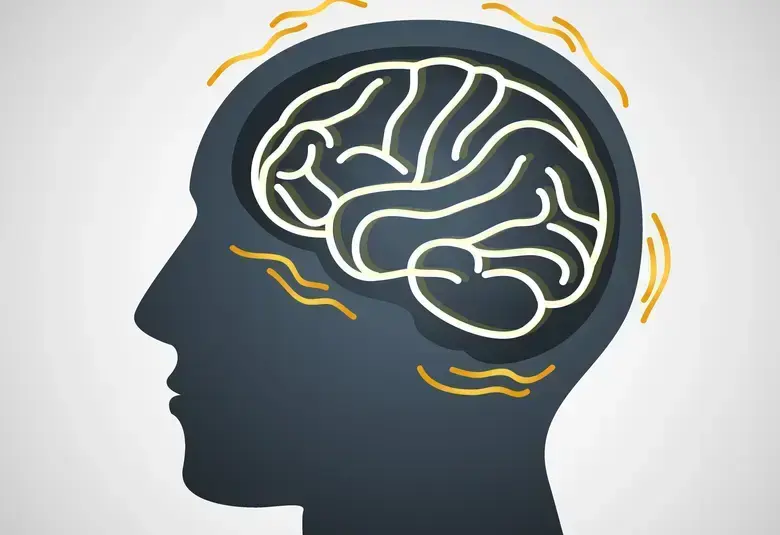Being a voice, sharing knowledge and reaching the whole of society are key priorities for EPA in the coming decade, as the future direction for Mental Health policies in the post‑COVID-19 era was discussed at EPA2020.
이번 EPA 2020에서는 포스트‑코로나 시대에 정신건강 정책이 나아갈 방향을 논의하면서 목소리 내기, 지식 공유, 사회 전체로의 도달을 향후 10년간의 우선순위로 꼽았습니다.
Ensuring all voices are heard is important, and lessons learnt from low-middle-income countries, emphasize task‑sharing and low-cost yet effective interventions.
모든 목소리들이 들리도록 하는 것이 매우 중요하며, 중저소득 국가들의 사례에서 작업공유, 그리고 저비용이지만 효과적인 중재치료의 중요성을 배울 수 있습니다.
Opportunities post-COVID-19
포스트 코로나 시대의 기회
Promoting collaboration and prioritizing risk prevention will make best use of resources
협업을 촉진하고 위험 예방을 우선시함으로써 자원을 최대한으로 활용할 수 있을 것입니다
COVID-19 has threatened service provision, but provides future opportunities, highlighting the importance of interconnection of health, environmental, social, economic and political dimensions of care, and revealing the strong adaptability and creativity that exists.
코로나바이러스 감염증-19(COVID-19)은 서비스 제공에 위협이 되기도 하였지만, 돌봄의 건강적, 환경적, 사회적, 경제적, 정치적 영역간 상호 연계성의 중요성을 일깨워주고 강력한 적응성과 창의성을 드러내며 미래에 대한 기회를 제공하고 있습니다.
The current Mental Health environment is challenging, with huge needs and limited resources. Innovative solutions to broaden access to care can result in more efficient services at reduced cost such as eMental Health approaches. Promoting collaboration and prioritizing risk prevention will make best use of resources.
현재의 정신건강 환경은 막대한 수요와 한정된 자원이라는 도전에 직면해 있습니다. 돌봄에 대한 접근성을 확대해주는 혁신적인 솔루션들은 전자정신보건의료(eMental Health) 방식과 같은 저비용 고효율 서비스를 만들어 줄 수 있습니다. 협업을 촉진하고 위험 예방을 우선시함으로써 자원을 최대한으로 활용할 수 있을 것입니다.
Future direction for Mental Health initiatives
정신건강 이니셔티브가 나아갈 방향
Aim to achieve excellent standards of mental health care, training and research
정신건강 치료, 훈련 및 연구를 우수한 수준으로 달성하는 것을 목표로 합니다
EPA President, Philip Gorwood (Sainte-Anne Hospital, Paris, France), set out EPA’s ambition for Mental Health policies beyond 2020:
EPA 학회장 필립 고우드(Philip Gorwood, 프랑스 파리 셍뜨안느병원)는 EPA의 2020년 이후 정신건강 정책 목표를 다음과 같이 정했습니다.
“To unite, share and enhance professional, scientific and policy building competencies aimed at achieving excellent standards of mental health care, training and research across Europe”.
"유럽 전역에 걸쳐 높은 수준의 정신건강 치료, 훈련 및 연구를 목표로 삼아 전문적, 과학적, 정책적 역량을 연합, 공유 및 향상시킨다."
Key priority directions are:
주요 중점 방향은 다음과 같습니다.
- Voice – Being the common voice of psychiatry in Europe
- 목소리 – 유럽 정신의학에서의 공동의 목소리
- Knowledge – Providing the platform for training and sharing knowledge
- 지식 – 훈련 및 지식 공유를 위한 플랫폼 제공
- Sustainability – Increasing EPA’s societal outreach
- 지속가능성 – EPA의 사회적 지원 증진
EPA is already involved in many collaborative clinical/research projects including ‘Mapping Mental Health care in Europe’ and ‘Value of Treatment Project’.
EPA는 '유럽의 정신건강 치료 매핑(Mapping Mental Health care in Europe)' 및 '치료 프로젝트의 가치(Value of Treatment Project)' 등 다양한 임상 및 연구 협업 프로젝트에 참여하고 있습니다.
Voice of families affected by mental illness
정신질환의 영향을 받는 가족들의 목소리
Families need more information, emotional and financial support, and respite care
가족들에게는 더 많은 정보와 정서적, 재정적 지원, 임시 간호가 필요합니다
Miia Männikkö (EUFAMI President) explained how EUFAMI1 seeks to be the voice in Europe for families affected by mental illness, with 39 member organizations in 24 countries. 88% of family members want more information, 83% emotional support, 78% respite care, and 62% financial support.
유럽 정신질환자 가족연맹(EUFAMI) 미아 맨니쾨(Miia Männikkö) 회장은 EUFAMI가124개국 34개 회원기관과 함께 정신질환의 영향을 받고 있는 유럽 내 가족들의 목소리를 대변하고자 펼치고 있는 활동들에 대해 설명했습니다. 가족 구성원 중 88%가 더 많은 정보를, 83%는 정서적 지원을, 78%는 임시 간호를, 62%는 재정적 지원을 필요로 합니다.
Future policy areas should include the following provision for these families:
이러한 환자 가족들을 위하여 미래 정책 분야에는 다음과 같은 내용이 포함되어야 합니다.
- Monitoring wellbeing and time spent caring
- 돌봄에 할애하는 시간 및 웰빙 상태 모니터링
- Education to increase understanding about mental illness
- 정신질환에 관한 이해 증진 교육
- Emotional support
- 정서적 지원
- Respite care
- 임시 간호
- Financial support
- 재정적 지원
Lessons from interventions in low-middle-income countries
중저소득 국가의 중재 치료 사례에서 얻은 교훈
More expensive is not always better or more effective
더 비싼 치료가 반드시 더 좋거나 더 효과적인 것은 아닙니다
Ricardo Araya (King’s College London, UK) provided the perspective gained from initiatives in low-middle-income countries. Services can be delivered without specialized human resources through task-sharing. In Zimbabwe, a primary care-based psychological intervention was carried out on ‘The Friendship Bench’, resulting in a significant reduction in depression (PHQ9) scores compared to controls2.
리카르도 아라야(Ricardo Araya, 영국 런던 킹스칼리지) 교수는 중저소득 국가의 이니셔티브에서 얻은 관점을 제시했습니다. 서비스는 전문 인력 없이도 작업공유를 통해 제공될 수 있습니다. 짐바브웨에서는 1차 진료 기반의 심리적 중재 치료가 '우정 벤치(Friendship Bench)'에서 진행되었는데, 대조군 대비 우울증(PHQ9) 점수가 상당히 감소했습니다2.
More expensive is not always better or more effective. An intervention to treat depression in primary care among low-income women in Chile using non-medical health workers showed 70% recovered by 6 months compared to 30% with usual care3.
더 비싼 치료가 반드시 더 좋거나 더 효과적인 것은 아닙니다. 비의료 보건 종사자들을 통한 칠레의 저소득층여성의 1차 진료에서 우울증 중재 치료는 6개월간 70% 회복률을 보여주어 일반적인 치료에서의 30% 회복률과 대조되었습니다3.
Our correspondent’s highlights from the symposium are meant as a fair representation of the scientific content presented. The views and opinions expressed on this page do not necessarily reflect those of Lundbeck.




